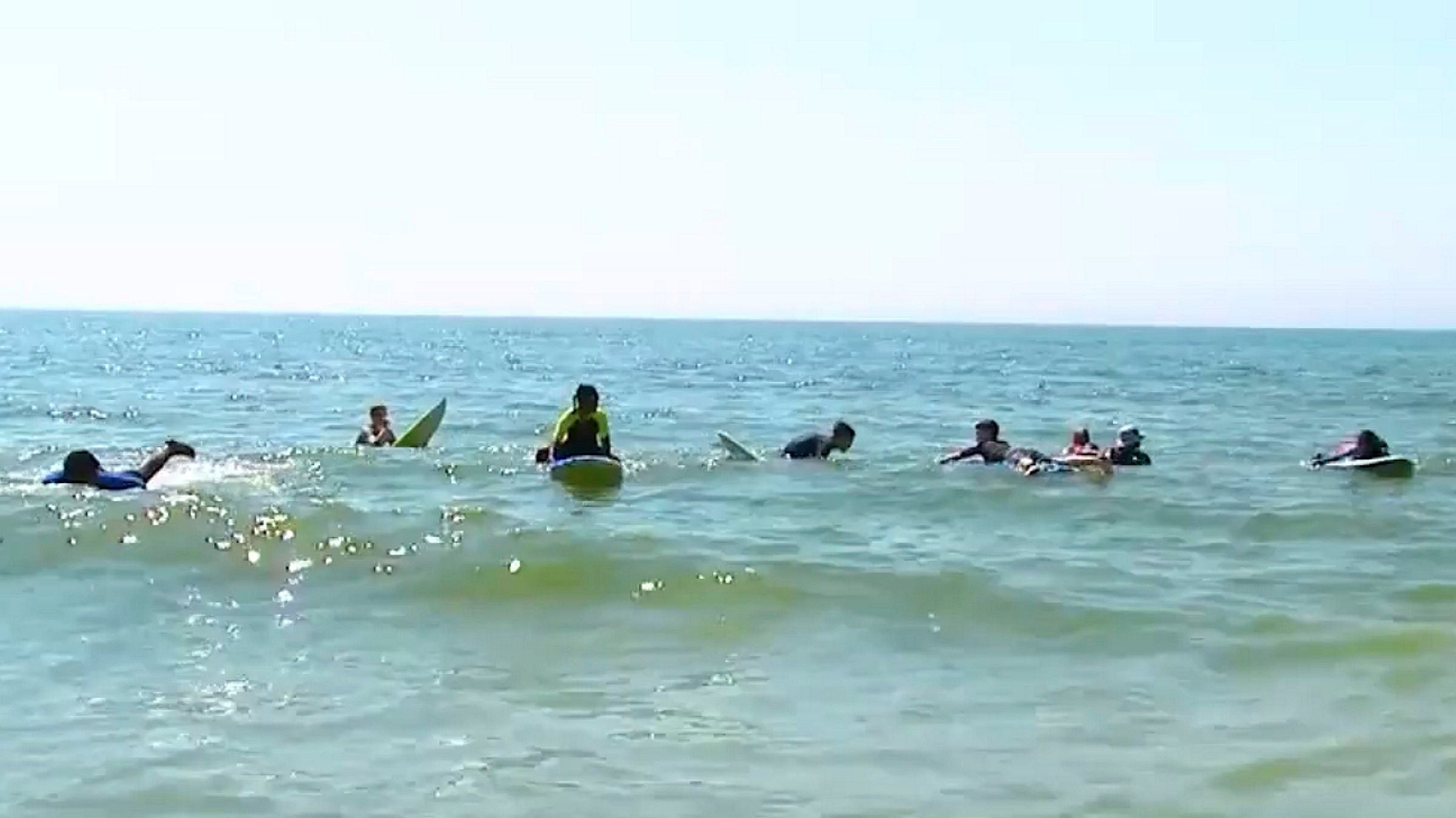Growing up, Lou Harris always saw skateboarding as his freedom. As he got older and became a surfer, he used it as an outlet from the problems of everyday life.
“It gets your mind away,” Harris explained. “If you have child support bills, you get in a fight with your girlfriend, you go in that water and you forget about all of that.”
Now, Harris is passing along his love for the two sports to children in New York City. He is the founding member of Black Surfing Association Rockaway, a division of the Black Surfing Association, that operates in Queens. The non-profit was founded in California in 1975 to introduce surfing to more African Americans. Harris and the rest of the members of his Rockaway chapter offer free surfing lessons to all kids to teach them how to love the water.
“It’s one thing if this is the Upper East Side, but it’s a blue-collar town,” Harris said. “You got cops, firefighters, construction guys here. No one here really has money really. This is open to every kid. I always say, if your parents can't afford lessons, call me.”
The classes also provide a way to get kids who wouldn’t normally hang out to become friends, which might be one of its most valuable lessons.
“That’s what surfing is all about,” he explained. “It doesn’t matter what color you are. It’s all about catching waves.”
Hang Ten
Harris taught himself to surf later in life. But he was inspired to offer community classes after reading about a teenager who started a mattress fire nearby just because he was bored. The fire ended up killing a police officer, and the young man was sentenced to 19 years in prison. Harris wanted to give kids something they could do for free in their neighborhood.
“I don’t care if you’re black, white, Asian or Muslim,” he explained. “If there’s five of you, and you’re hanging out on the corner with no job, you’re going to get into trouble.”
Black Surfing Association Rockaway also teaches free skateboarding classes, as well as other activities year-round like art and cooking.
“We want to start kids off young,” Black Surfing Association Rockaway marketing and events planner Tina Schlissel pointed out. “We want to keep them out of trouble.”
They’ve also organized the Black Lives Matter paddle-outs, where dozens of surfers gather in Rockaway to swim out in solidarity with the movement.
But the organization is mostly known for its surfing lessons, which can be especially life-changing for African-American kids. About 64 percent of black kids do not know how to swim, according to the USA Swimming Foundation. They are three times more likely to drown than white children, the CDC reports. The issue is tied to the days of segregated pools and the decreasing number of public pools, which made it harder for black kids to have access to swimming.
“That’s what I’m doing with these kids,” he said. “I want to get them out of that, into something they might not have had the opportunity to do.”
Paddling Out
Harris makes sure to teach all kids water safety, which includes how to identify rip tides and how to get away from them. He’s still surprised how many parents ask him questions about it because they themselves don’t know what to do in those situations.
Nineteen percent of kids won’t learn how to swim if their parents don’t know how to swim, according to the USA Swimming Foundation. Harris’ parents didn’t know how to swim either. However, they bought a specific house in Long Island that had a pool so he and his siblings would learn. “It was kind of a scary time because we started swimming right when ‘Jaws’ came out,” he recalled. “‘Amity Beach, that’s where Jaws was - and we learned to surf, swim in Amityville. So we were convinced that there was sharks out there.”
“But, there wasn’t,” he added, smiling.
Harris takes on surfers at all levels. Casene Sykes was only on his second day of surfing, but already standing up on his board.
“People say I’m a natural,” he said modestly. “I just say thank you.”
Meanwhile, Aiden Leary rides his bike with his surfboard to the beach at 73rd St. almost every day in the summer. He’s been going to Harris’ classes for two summers and loves how surfing is more than just technique -- it can also be creative.
“It’s almost like an art because everybody has their own form," he said. “It’s really one of those things where it’s all about how you take it and what you do with it.”
And, he’ll keep on returning. Leary considers Harris a mentor.
“He’s a really caring guy,” he said. “It just brought me back again and again.”



